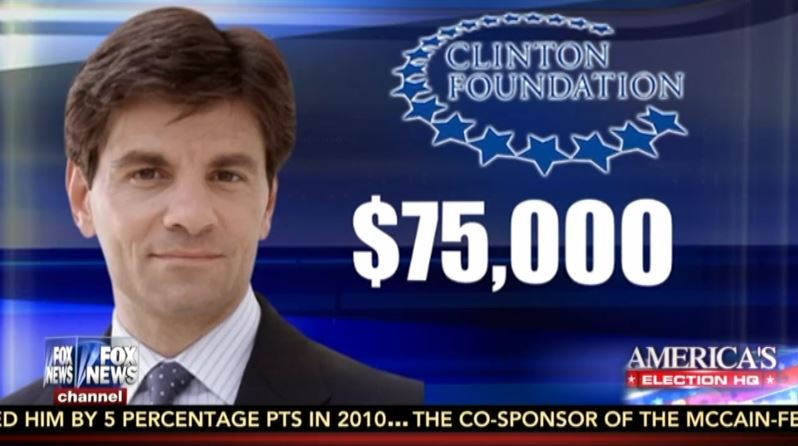Imagine a top news anchor failing to disclose his hefty contributions to a controversial foundation closely tied to a presidential campaign while on air trying to discredit someone vocal against the same political party. Let’s not pretend we are in a fiction novel; this is exactly what happened at ABC news nine years ago.
George Stephanopoulos, the top political anchor at ABC News, with a celebrated status from working for Bill Clinton’s 1992 presidential campaign, acted as ABC’s supposed neutral news anchor. However, when he harshly interviewed Peter Schweizer, using the author’s background as a Republican and funds from a conservative source to undermine his credibility, Stephanopoulos forgot to mention his own conflict of interest – $75,000 he’d donated to Clinton Foundation.
The issue was not Stephanopoulos funding what he supports; the problem was him presenting himself as an unbiased interviewer while having a personal investment in discrediting the author who was questioning the dealings of the Clinton Foundation during Hillary Clinton’s tenure as Secretary of State and leading presidential candidate. Such behavior flouts journalism’s fundamental norms: being objective and transparent.
When the Washington Free Beacon contacted ABC News regarding Stephanopoulos’ undisclosed contributions to the Clinton Foundation, the news seemed to be leaked to Politico’s Dylan Byers. Stephanopoulos was then quoted discussing his contributions and apologizing for not disclosing them earlier, as he should have. All this led Jack Shafer, another member of Politico, to critique ABC for their seeming attempts to suppress the Free Beacon’s exposures.
Even following this revelation, it seems Stephanopoulos only took token steps to fix his errors. He offered to not moderate a debate among GOP presidential candidates in February 2016, stating he wanted to avoid depriving viewers of a good debate. There was also a formulaic apology offered on the two shows he anchored, ‘Good Morning America’ and ‘This Week’.
Critics, though, were not won over by these actions. FNC’s Howard Kurtz stated Stephanopoulos’s blunder threatened his 18 years at ABC News, terming it as a grave error in judgement and an unthinkable act of non-disclosure to his bosses and the viewers. NewsBusters editor, Tim Graham, asserted that Stephanopoulos should have recused himself from the interview or confessed to his sizeable donation to the foundation.
Ironically, ABC issued a statement supporting Stephanopoulos, sticking to their claim that he just made an honest mistake.
This saddening saga seems to reflect favoritism to Stephanopoulos by ABC’s news management, as Geraldo Rivera, an ABC alumnus, pointed out. It unquestionably spotlights the glaring double standards employed by the network, undermining its credibility. The story ended with Donald Trump highlighting Stephanopoulos’s conflict of interest when asked what he thought about Hillary Clinton, calling ABC out and showing the world the circus for what it was. News outlets must realize that credibility and public trust, once lost, are challenging if not impossible to regain.



